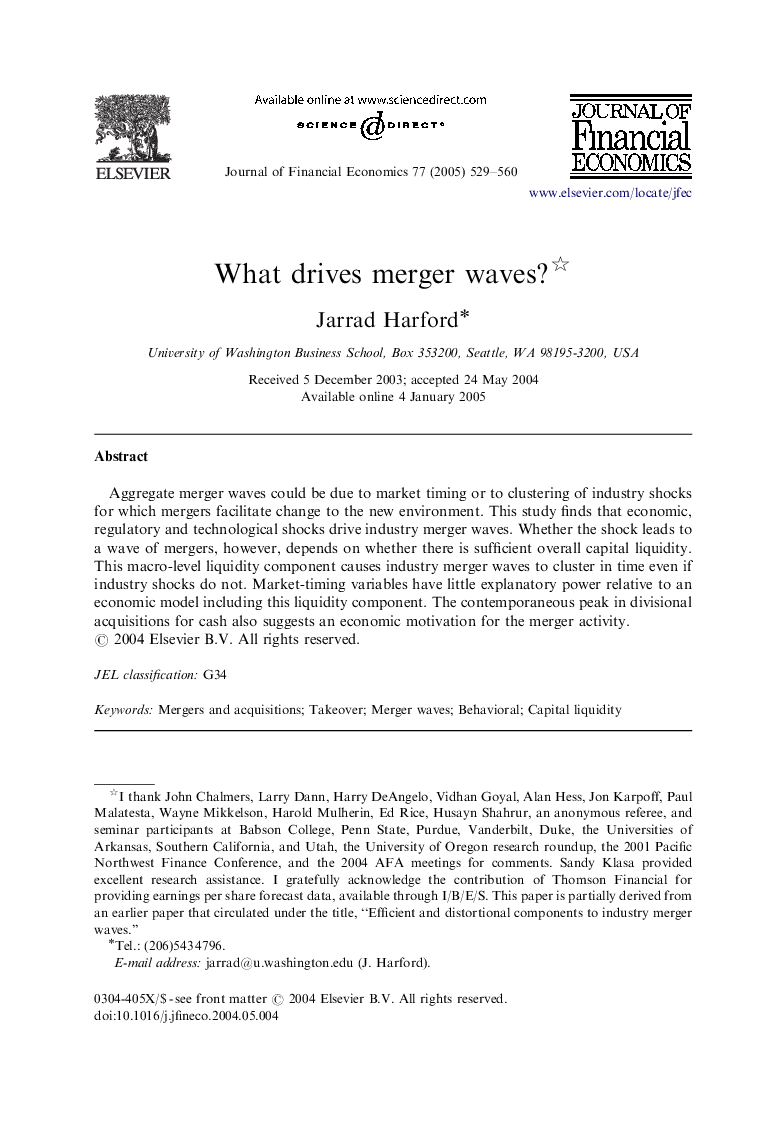| Article ID | Journal | Published Year | Pages | File Type |
|---|---|---|---|---|
| 10475889 | Journal of Financial Economics | 2005 | 32 Pages |
Abstract
Aggregate merger waves could be due to market timing or to clustering of industry shocks for which mergers facilitate change to the new environment. This study finds that economic, regulatory and technological shocks drive industry merger waves. Whether the shock leads to a wave of mergers, however, depends on whether there is sufficient overall capital liquidity. This macro-level liquidity component causes industry merger waves to cluster in time even if industry shocks do not. Market-timing variables have little explanatory power relative to an economic model including this liquidity component. The contemporaneous peak in divisional acquisitions for cash also suggests an economic motivation for the merger activity.
Related Topics
Social Sciences and Humanities
Business, Management and Accounting
Accounting
Authors
Jarrad Harford,
